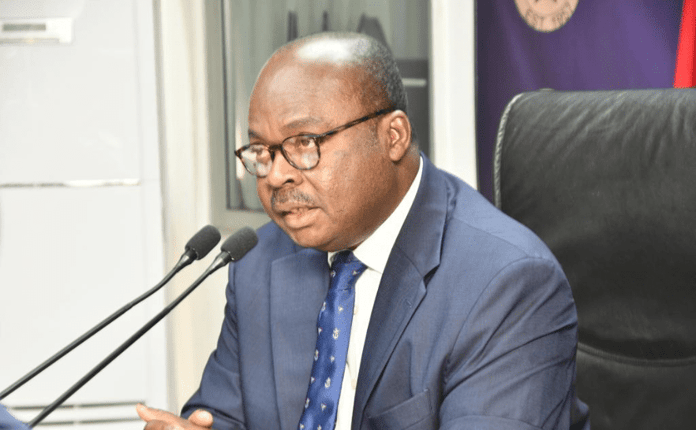|
Getting your Trinity Audio player ready...
|
The Monetary Policy Committee (MPC) of the Bank of Ghana (BoG) has increased the policy rate to 30 percent from 29.5 percent.
This was announced by the Chair of the Committee Dr Ernest Addison during the 113th MPC press conference in Accra on Monday, July 24.
Dr Addison explained that Fiscal Policy Implementation for the first five months of the year has been broadly in line with the IMF supported programme.
The primary fiscal balance is moving in line with expectations and Governments recourse to central bank financing has been eliminated thus far. Although revenue underperformed over the period, this was countered by corresponding slowdown in expenditures.
In the outlook, remaining vigilant to the risk of financing the budget from resources from the short end of the market, enhancing revenue mobilization and aligning expenditures with revenue inflows will be key in forging ahead with fiscal consolidation efforts to help foster credibility, restore confidence, support the disinflation process, and anchor the emerging stability.
Implementation of the IMF supported Extended Credit Facility programme for the first
six-months of 2023 is broadly in line with the Performance Criteria targets for June
2023. While the programme envisaged a drawdown in reserves of close to US$100
million, the BoG built reserves in excess of U$S1 billion.
BoG financing of the budget, under the programme, is expected to be zero and this has been met. Regarding the Monetary Policy Consultation clause, inflation, as at June 2023 was within the target band.
After declining consistently between January to April, headline inflation increased in May and June on account of a variety of factors, including higher food prices, implementation of new tax measures, and utility tariff adjustments. Overall inflation increased from 41.2 percent in April to 42.2 percent in May and then further to 42.5percent in June.
“Underlying measures of inflation have all ticked up in May 2023,” he said.
While core inflation ticked up, businesses expectations of inflation remain flat at an elevated level. Although inflation is expected to decline in the near-term, baseline forecasts show a slightly higher elevated profile in the year ahead, which, if not contained, could embed in underlying inflationary pressures.
It is important that policy responds appropriately and decisively to prevent these risks from becoming embedded and consequently derail the disinflation process.
In the Committee’s assessment, risks to the inflation profile are judged to be elevated
driven by second round effects of food prices. Inflation has persistently hovered
around 42 percent throughout the second quarter of 2023 even though central bank
financing has been eliminated in the first six months of the year.
Ghana’s macroeconomic framework requires decisive tightening from both the fiscal and
monetary side to anchor inflation expectations firmly on a declining path.
“Given these considerations and under the current circumstances, the Committee has
decided to increase the Monetary Policy Rate by 0.5 percent to 30 percent. In the
coming months, the committee will monitor closely incoming inflation data and will
respond appropriately, if needed, should inflation persist,” he said.
Source: myghanadaily


